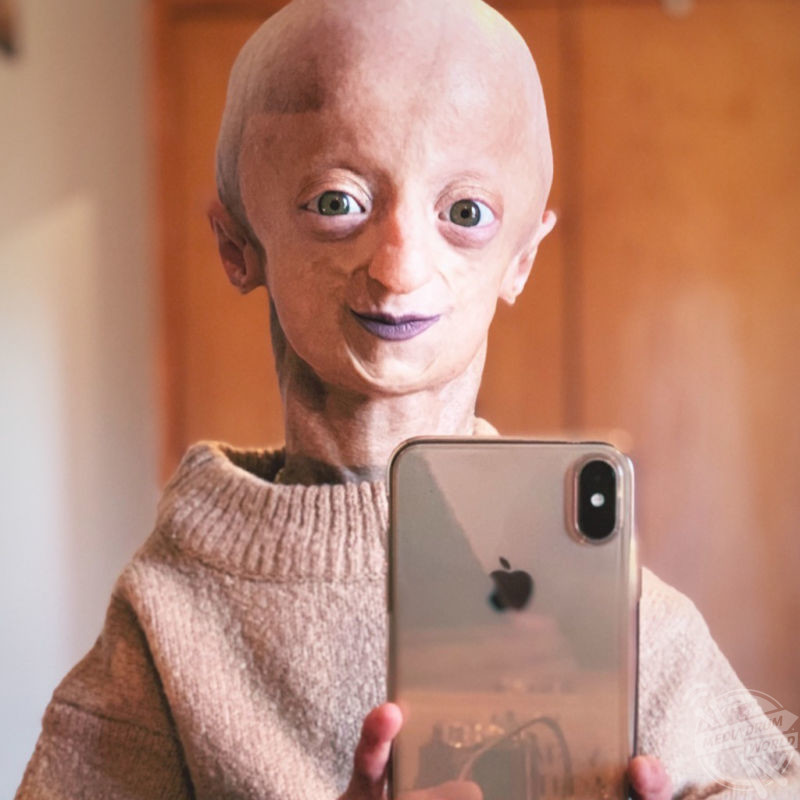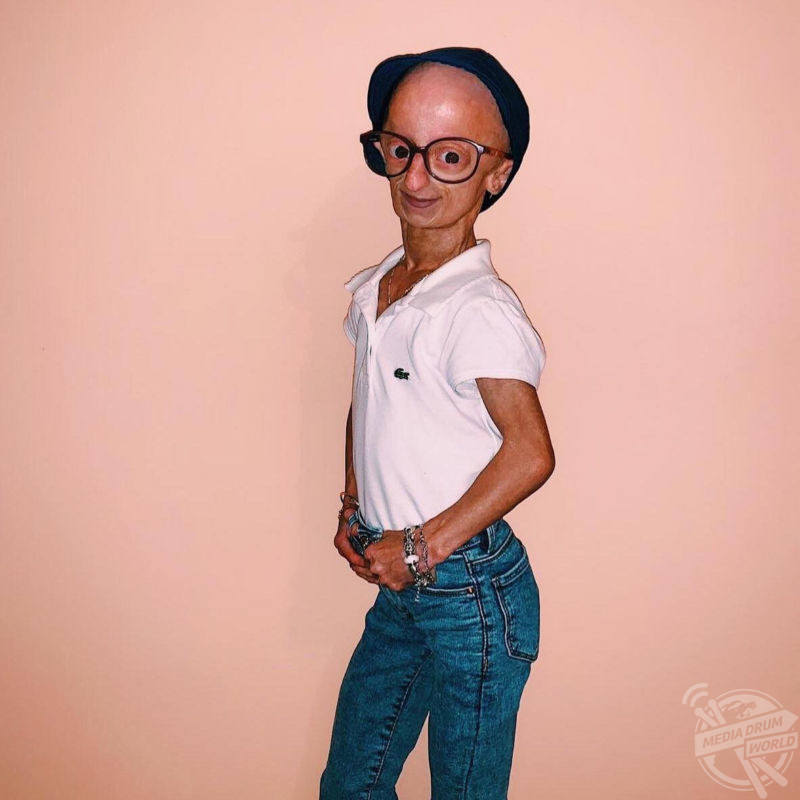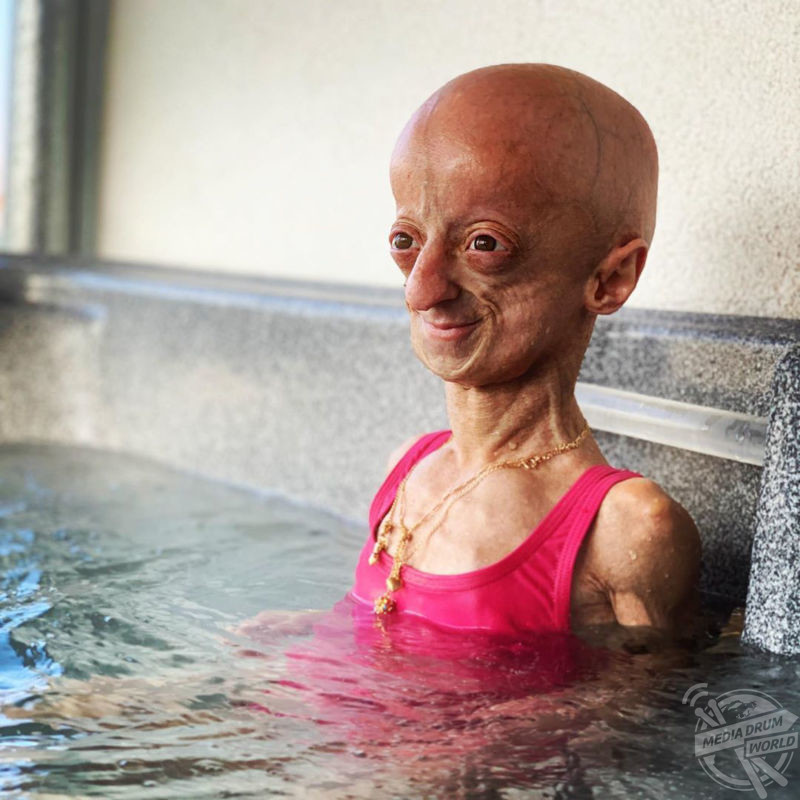By Liana Jacob
MEET THE WOMAN with a rare condition that means she ages SEVEN TIMES FASTER than normal and has surpassed the average MORTALITY rate at the age of TWENTY.
Claudia Amaral (20) from Viseu, Portugal, was just four months old when she began experiencing symptoms such as hair loss, wrinkled skin and pigmentation of the skin.
In 2000, when she was just one year old, she was diagnosed with progeria, a rare, fatal, genetic childhood condition characterised by premature ageing.

The doctor informed her parents that she could die either that day or the day after and that the average age for girls with the condition would only be up to 13 or 14 years old.
Every day since she was diagnosed Claudia has been defying the odds and has grown up with a supportive family and friends who have always treated her equally to them.
At the age of 20, her progeria age is 140 and she has frequently had her hip replaced due to bone wear, but she hasn’t let any of her medical issues stop her from going out with friends and her goal is to prove that the condition doesn’t limit her in any way.
“At the age of four months, I began to have hair loss, pigmentation in the skin, wrinkled skin and weight loss,” Claudia said.
“At the time the doctors told my parents that from today until tomorrow I could die, but they also said that progeria’s average age for girls would only be up to thirteen to fourteen years.

“Progeria is a disease that ages seven times faster than normal, for example I am twenty years old, but in progeria years I’m like one hundred and forty years old.
“All the problems of an elderly will appear, bone problems, heart problems, and so on. Usually the mortality rate in a child with progeria is up to fourteen or fifteen years, and by this time I have already exceeded the average.
“I never felt different from my friends or the people around me, I was always treated the same, including at school.
“Even today there are reactions; for example, I walk on the street and often people stop and watch, others comment, many of the others approach me and ask what my disease is called, and ask me how old I am. It’s like everything, they have good reactions, as well as bad reactions.”
Children with progeria, also known as Hutchinson-Gilford progeria syndrome (HGPS), usually have a normal appearance in their early infancy.
At roughly nine to 24 months of age, they begin to experience profound growth delays, resulting in short stature and low weight.

Researchers have concluded that the cause of progeria is a single letter misspelling in a gene on chromosome 1 that codes for lamin A, a protein that is a key component of the membrane surrounding he cell’s nucleus.
It is so rare that there are only 350 to 400 children living with progeria worldwide. Claudia has made it her mission to prove that this condition won’t hold her back.
“Progeria has not prevented me from doing anything; I live my life as if progeria does not live inside me,” she said.
“I’ve never really had any tough times when having progeria; even when I move my hip, because of bone wear, when my hip goes out of place, I don’t feel pain.
“My recovery has always been good, doctors have told me to have a rest after having my hip replacement, but I just forget about the rest, and I go out with my group of friends, dancing and all sorts.

“The times that were supposed to be difficult are seen as great battles overtaken with great success. I feel very good, nothing has knocked me to the bottom, as it was supposed to.
“I try to fully embrace my condition when I go to events with children with the same pathology as me and when I go for routine hospital appointments.
“I have a perfect family and a large group of super dear friends who are always there to support me. My friends say I am a great warrior in a battle that could have been impossible to win.
“Of course, I’ve already won at this point, because I have exceeded the progeria average age, so I think I won the game, and I will continue to win, I hope.
“The disease does not prevent us from anything, we have to prevent it from winning. If we depend on a disease, we will never be able to overcome all the obstacles that progeria puts in front of us. We have to think positive and live as if we were killing progeria.”






